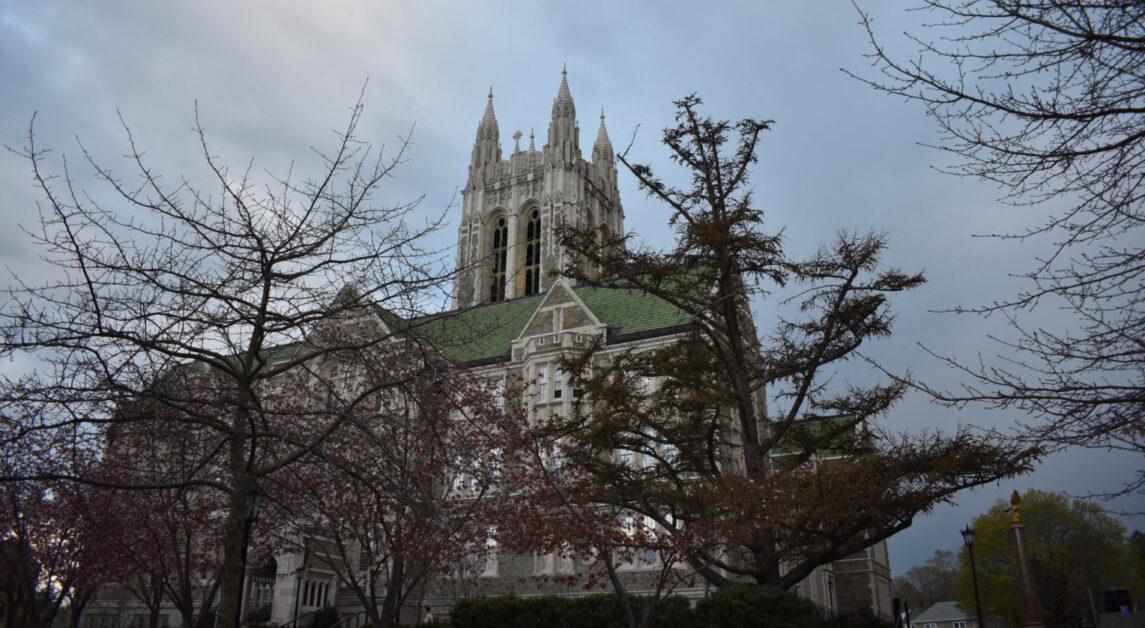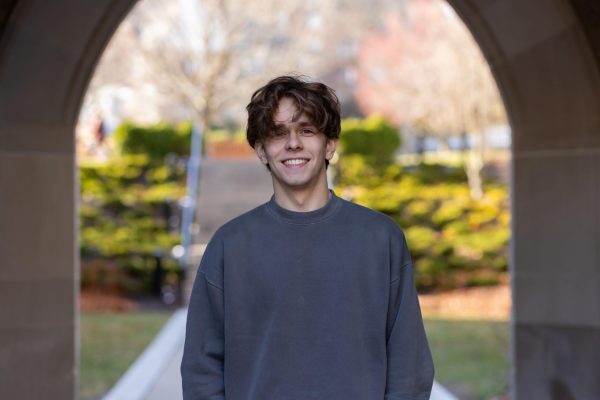As President-elect Donald Trump prepares for his return to the White House on Jan. 20, the prospect of impending changes to immigration policies is raising concern among some international students at Boston College.
“I feel like there’s probably a lot of things that [Trump] will work on as part of [his immigration] policy, and I don’t know what it’ll look like for people on an F-1 visa,” said an international student from Hong Kong who wished to remain anonymous for fear of retaliation from the federal government. “Just this thought of having to think about that all through break is a little bit scary.”
On Dec. 4, the Office of International Students and Scholars (OISS) sent an email to international students at BC, offering reminders for those traveling abroad in light of potential immigration policy changes under the incoming administration.
“We recognize that there may be questions about potential U.S. policy changes that could impact international students with the upcoming change in Presidential administrations,” the email, obtained by The Heights, read. “As always, the OISS is monitoring the situation carefully and will promptly communicate any relevant updates with you.”
Although other universities across the country issued similar advisories, BC’s notice still sent ripples through the international student community and heightened some students’ anxiety.
“I think a lot of colleges sent out similar emails, but it is still pretty anxiety-inducing in general,” the student from Hong Kong said. “I remember speaking to friends of mine, because I think we were screenshotting it, and sending it around, and they were like, ‘Oh my God,’ like, ‘What is this?’”
When asked whether the OISS email provided reassurance, some students felt it had the opposite effect.
“I feel that it was more anxiety-inducing than reassuring,” a student from Singapore, who also wished to remain anonymous, said.
The student from Hong Kong expressed a similar sentiment.
“I think obviously it was necessary because I was thinking about if I would need different documentation since I’m coming back,” the student said. “But—I can’t lie—it could have been more reassuring.”
In 2017, just a week after his inauguration, then-President Trump signed an executive order temporarily restricting individuals from seven predominantly Muslim countries in the Middle East from entering the U.S. The order later became widely referred to as the ‘Muslim Ban.’
Mary Holper, director of the Immigration Clinic and a clinical professor at BC Law School, said the 2017 Muslim Ban, along with other policies Trump attempted to enact, provide insight into what he may try to implement again and how universities will prepare.
“The Muslim Ban came out just a few days after [Trump] got sworn in last time,” Holper recounted. “This is why many universities are telling their international students to come back before January 20 to re-enter the country, so that you’re not blocked at the airport—which did happen to people who were still gone the last time.”
Currently, about 3.1 percent of the international student population at BC is from the Middle East, according to statistics released by the OISS. If a similar ban were instituted, these students could face the greatest risk of being barred from entering the U.S.
“It is kind of risky for future travel during this administration—going back for future breaks, trying to travel for conferences,” Holper said. “Again, everyone would be advised to just watch and see what’s happening. But you’re always better off here in the United States than standing at a border, trying to enter the United States, even if it’s a re-entry.”
Some students expressed concern about what Trump may do based on his past stances and immigration measures.
“I know that Trump does have a track record of being quite tight on immigration and especially international visas,” said John Qi, MCAS ’28, an international student from Hong Kong. “I believe he’s probably going to do something like that again in the future, which would probably make international study in the U.S. more difficult for incoming students.”
While most international students at BC study under F-1 visas, some non-citizen students are living in the United States under programs like Deferred Action for Childhood Arrivals (DACA), Temporary Protected Status (TPS), or Humanitarian Parole. Unlike F-1 visa holders, these students are more vulnerable to deportation if significant policy changes are implemented.
According to Holper, there is concern that Trump might attempt to dismantle some of these programs in the same way he did during his previous term.
“We also know from his [plans from] last term, and then there’s more nitty-gritty, more detailed ones, such as ending certain programs that were available during the Biden administration for non-citizens, and a big one would be ending Temporary Protected Status for certain countries,” Holper explained.
Holper cautioned against assuming that privilege would protect international students.
“For an international student who has accomplished all this to now be in higher-ed here in the United States, I think it’s really easy to just assume ‘Hey, I’m an intelligent, educated person who paid to come here legally. Why would I get kicked out? Why would this not work out for me?’” Holper stated.
The original 2017 Muslim Ban applied to nationals from the listed countries, regardless of their immigration status, though green card holders were later exempted.
“I think this is a place where the immigration system can be very, very arbitrary and the courts aren’t the ones that are going to save you,” Holper said.
Colleges around the country have already begun exploring steps to protect and support their international students in anticipation of potential policy changes.
Holper emphasized that universities like BC must familiarize themselves with and utilize the Family Educational Rights and Privacy Act (FERPA) to safeguard students from potential encroachments by the next Trump administration.
“Getting very familiar with those protections, how they operate, when they operate, and what types of requests are going to come your way that you don’t have to just instinctively go along with—I think that’s going to be an important thing for universities to do,” Holper said.




















